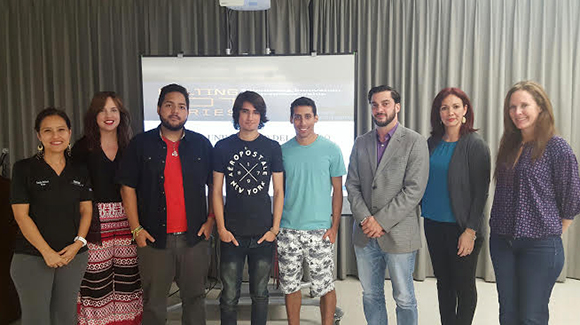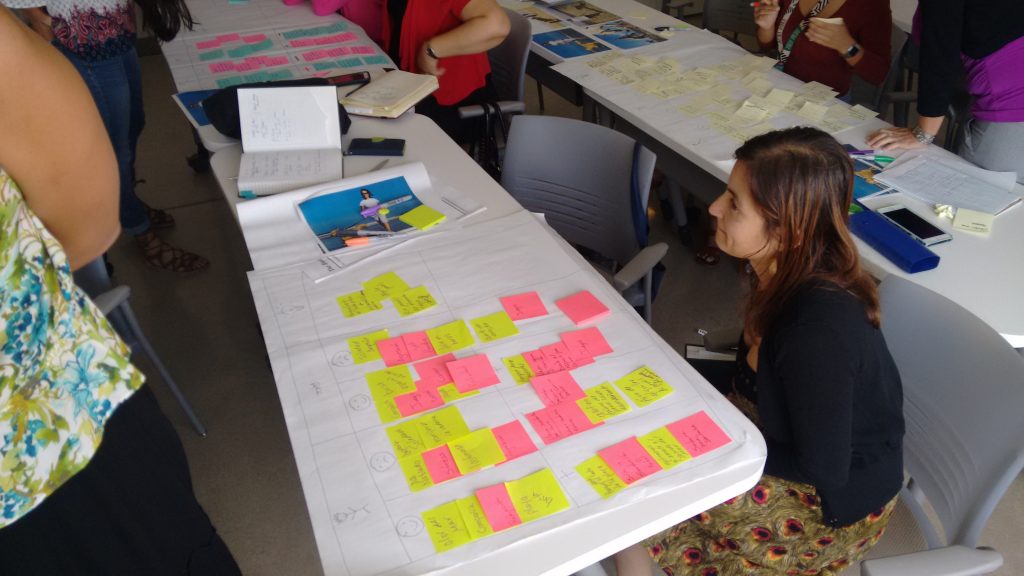
“A great teacher sees every classroom or team as an opportunity”
This week we continue our series on educators within the VentureWell network doing good work. These educators are challenging norms in higher education and inspiring students to impact the world through invention.
This month’s faculty spotlight is Alizabeth M. Sánchez-López, Associate Professor in the School of Business and Entrepreneurship at the Universidad del Turabo in Puerto Rico. Alizabeth is a charter member of the Pathways in Innovation program and an attendee of our annual conference, Open.
How did you get interested in teaching entrepreneurship?
At first, I was mostly interested in conducting research to stimulate entrepreneurship in my region. But I realized that research without dissemination mechanisms is more or less worthless, and that teaching is one of the best ways to disseminate and test what you’ve learned. Publishing and presenting research findings are still important, but I believe it’s through teaching that we generate the most impact, and where it really matters: on students.
 What’s your favorite thing about teaching?
What’s your favorite thing about teaching?
There are so many things I like! Let me share my two favorites: (1) The opportunity it provides me to innovate, and (2) what I learn from students in different disciplines. I love to invent new ways to teach. There are so many ways to accomplish learning goals and students from so many different backgrounds that no matter how often I’ve taught a course I’m able to be creative in how I approach it. Also, I love to have students from multiple disciplines because they bring so many different perspectives and mental modes to the table. I learn how to speak their language and how to relate entrepreneurship to their discipline. There is no greater satisfaction to me than when a student from a non-business discipline tells me that they can relate what they learned in the course to what they’re doing in their field.
What’s your least favorite thing about teaching?
Institutional limitations. Sometimes there are limitations in terms of what I can introduce in a course, either because of institutional policies or interpretation of accreditation guidelines. For example, entrepreneurship involves uncertainty conditions: searching and communicating, particularly to gather resources needed. I can simulate these conditions in my class by not setting specific evaluation dates or even stating that final evaluations will be conducted by unknown external parties and under general criteria (not too-specific rubrics), but doing things like this is often impossible due to institutional policies and interpretation of accreditation requirements.
Where would you like to see the field of entrepreneurship in five years?
Some scholars have recently argued that entrepreneurship could be considered a way of reasoning or logic, like the scientific method, If that’s truly the case, I hope to see entrepreneurship being taught at all levels, including elementary, middle, and high-school, and in all disciplines.
What traits make for great teachers, advisors or mentors?
A great teacher is open and willing to adopt new teaching methods. A great teacher sees every classroom or team as an opportunity to test new methods based on a thorough understanding of the students. Since I love music, I often compare the role of teachers, advisors, and mentors with that of the conductor of an orchestra. The conductor needs to truly understand (get the feeling of) the vision of a composer (students/potential entrepreneurs, inventors, innovators) to align the orchestra (the team and other key parties/resources) in order to get them to play a beautiful song in harmony (help them connect the pieces to achieve the vision).
What books on entrepreneurship and innovation have you been reading lately?
Since I’ve been trying to design experiential activities to incorporate lean startup concepts in the classroom I decided that I needed to go back to its foundations. I’m reading Steve Blank’s The Four Steps to the Epiphany to really get the initial premises and assumptions that lead to lean startup methods. Although I haven’t read it yet, next in line is The Field Guide to Human Centered Design by IDEO.
What’s your most useful classroom activity or assignment?

My two favorites: The Stalker Game and Innovation Canvas Game.
The purpose of the Stalker Game (honestly, that’s what we call it) is to understand the importance of observing human behavior and understand “personas” in order to identify improvements. Students must select one individual to “stalk” for 20 minutes, report what the individual is doing and suggest improvements.
In the Innovation Canvas Game, teams of students use a canvas to go through six stages of the I&E process and apply different sets of skills: problem definition & solving, creative thinking, informational search, communication skills, and team building, among others. After completing the Innovation Canvas, each team prepares a 30-45 second Rocket Pitch (infomercial style) describing the problem and solution. Their solutions are put to the test by the reactions of the classroom: laughter, “Wow & So Cool!” moments, boredom, etc.